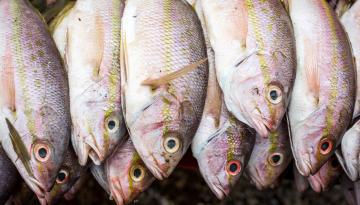
Iwi in the Bay of Plenty are taking a pragmatic view when it comes to the future of wild fisheries by looking at the potential aquaculture can offer the region.
A report on possible opportunities on how to develop the industry was released on Thursday, outlining a strategy for creating a sustainable and resilient local aquaculture sector.
The report was commissioned by Ngā Iwi I te Rohe o Te Waiariki, and supported by the Ministry for Primary Industries and Te Ohu Kaimoana.
In order to capitalise on the potential, the report identified a number of key areas of opportunity, including hatchery development, the development of new technologies such as remote monitoring and artificial intelligence, co-operative models, workforce development and developing a unique brand story for Bay of Plenty aquaculture that leverages traceability and Māori identity.
Chris Insley, chief executive of Te Arawa Fisheries and Bay of Plenty Iwi Aquaculture project leader, said the report was a critical investigation into alternative ways to supply seafood to both the local population and the world market.
"The reality is that we need to plan ahead for a future decline in wild fisheries, so that we can meet the increasing global demand for protein and maximise the opportunities that will bring," Insley said on Thursday.
"Through an iwi-led, collaborative approach the partnership will develop a roadmap towards a thriving, sustainable iwi aquaculture industry that contributes to Māori development and wellbeing, and benefits New Zealand as a whole."
Although much was already being done in the field by iwi organisations, Insley said, more "could and should be done" to expand those efforts and create more jobs for whānau and wider communities.
He said the initiative took a holistic approach and was guided by Te Ao Māori.
"It recognises the importance of a long-term view, interconnectedness and a whole systems approach. It is imperative that social, cultural, environmental and economic aspects are all balanced and considered together, empowering kaitiakitanga."
According to the report, Crown resourcing must be provided to assist iwi in the Waiariki area apply for upto 10,000ha of aquaculture space, as part of the historical Treaty of Waitangi settlements.


